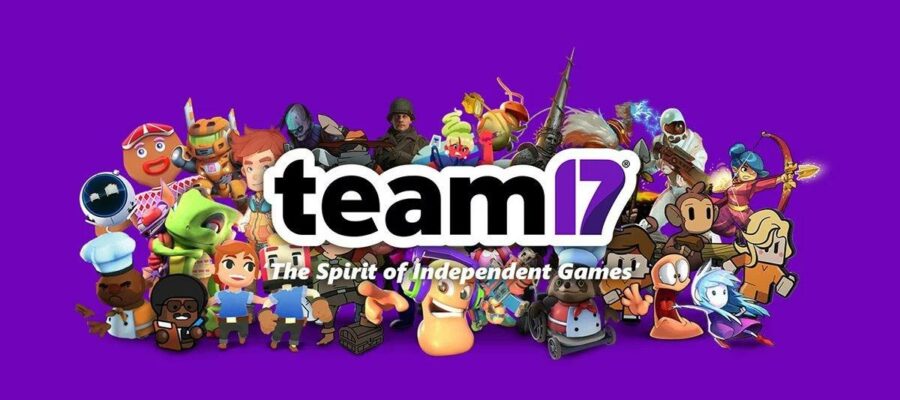Seven game companies have announced redundancies in the past month, painting an increasingly very bleak picture of the industry.
Even pre-pandemic, the video games industry was touted as being larger than the film and music industries combined. Post-pandemic, video games have only become even more lucrative, with the UK gaming market alone said to be worth over £7 billion.
And yet, in just the past month, no less than seven studios have announced redundancies, with UK publisher Team17 being the most recent example.
Publishers cutting jobs even when nothing is wrong is not unusual – Activision Blizzard famously laid off swathes of employees even as it boasted of record profits – but something unusual seems to be happening this year.
Let’s summarise all the most recent instances of layoffs:
- Immortals Of Aveum developer Ascendant Studios lost nearly half its workforce, apparently due to the game’s poor sales, in a move the CEO called a ‘painfully difficult, but necessary decision’.
- Three studios under Embracer Group – Crystal Dynamics, Gearbox Publishing, and Beamdog – were hit with layoffs not long after the closure of Saints Row studio Volition.
- Roblox, in an effort to downsize, fired 30 employees in its talent acquisition organisation, according to TechCrunch.
- Staff were let go from Activision Blizzard’s Hearthstone team due to ‘organisational changes.’
- Creative Assembly is expected to be hit with job losses after Sega pulled the plug on the studio’s Hyenas live service game.
- Epic Games cut 870 jobs across its Fortnite team and Fall Guys studio Mediatonic as well as bumped up the prices for Fortnite’s V-Bucks currency.
- Team17 is expected to be met with redundancies, with Eurogamer reporting that 50 roles within the QA department are at risk due to the studio planning to outsource QA work. The studio has also ‘amicably parted ways’ with CEO Michael Pattison.
This isn’t even taking into account the widespread layoffs within Microsoft that occurred at the beginning of the year. With so many examples taking place within such a short timeframe, one has to ask why are these layoffs happening all at the same time?
In some cases, such as Ascendant Studios, it’s very obvious what’s happened and there’s nothing unusual about it, but the same is not true of many of the other examples, such as Epic Games suddenly cutting 16% of its workforce.
At a glance, Fortnite seems to be doing perfectly fine, given its continued popularity and constant collaborations with movies, TV shows, other games, and real-world celebrities. So how could it not be turning a profit?
In an email to employees, shared publicly, CEO Tim Sweeney admits that, ‘We’ve been spending way more money than we earn, investing in the next evolution of Epic and growing Fortnite as a metaverse-inspired ecosystem for creators. I had long been optimistic that we could power through this transition without layoffs, but in retrospect I see that this was unrealistic.’
This is no doubt what happened with Embracer Group as well. There were always concerns with how rapidly the company was growing as it hoovered up more and more studios and IPs to call its own.
Following a failed $2 billion deal, though, suddenly Embracer Group began cancelling projects and admitting it would soon be shutting down studios and firing employees.
In the case of live service games like Fortnite and Roblox, this could also be a sign that they’ve peaked in terms of growth and are struggling to find new avenues to make money from.
It’s also something subscription services like Xbox Game Pass and PS Plus are believed to be struggling with, and given the business world’s usual obsession with infinite growth, the prospect of merely making as much money as last year, and not more, is not acceptable for many executives and investors.
It’s also possible that these services are proving to be detrimental to the sales of indie games, as Devolver Digital recently admitted it ‘declined subscription deal proposals that undervalued the titles’ value and revenue opportunities in 2023 and 2024, resulting in lower subscription revenues.’ Team17 does support subscriptions services though and may have been affected in the manner predicted by Devolver.
Combined with Sega shutting down Hyenas, it could also be a sign that free-to-play live service games are falling out of favour. There are numerous instances of new efforts to break into the market shutting down after only a short while; Square Enix is especially guilty with how many short-lived free-to-play mobile games it has launched recently.
These frequent stories of layoffs recall Nintendo’s fiscal woes from 2014, when the Wii U was struggling to turn a profit. Yet rather than fire employees to save money, then-president and CEO Satoru Iwata, and several other executives, opted to take pay cuts instead.
In the near decade since, that’s remained an exception rather than the rule and yet demonstrates that there is an alternative to counterbalancing dwindling sales and profits without rendering many employees out of work.
Especially when you consider the next thing that happened to Nintendo after that, was the Switch…
Email [email protected], leave a comment below, follow us on Twitter, and sign-up to our newsletter.
Follow Metro Gaming on Twitter and email us at [email protected]
To submit Inbox letters and Reader’s Features more easily, without the need to send an email, just use our Submit Stuff page here.
For more stories like this, check our Gaming page.
Sign up to all the exclusive gaming content, latest releases before they’re seen on the site.
Source: Read Full Article


